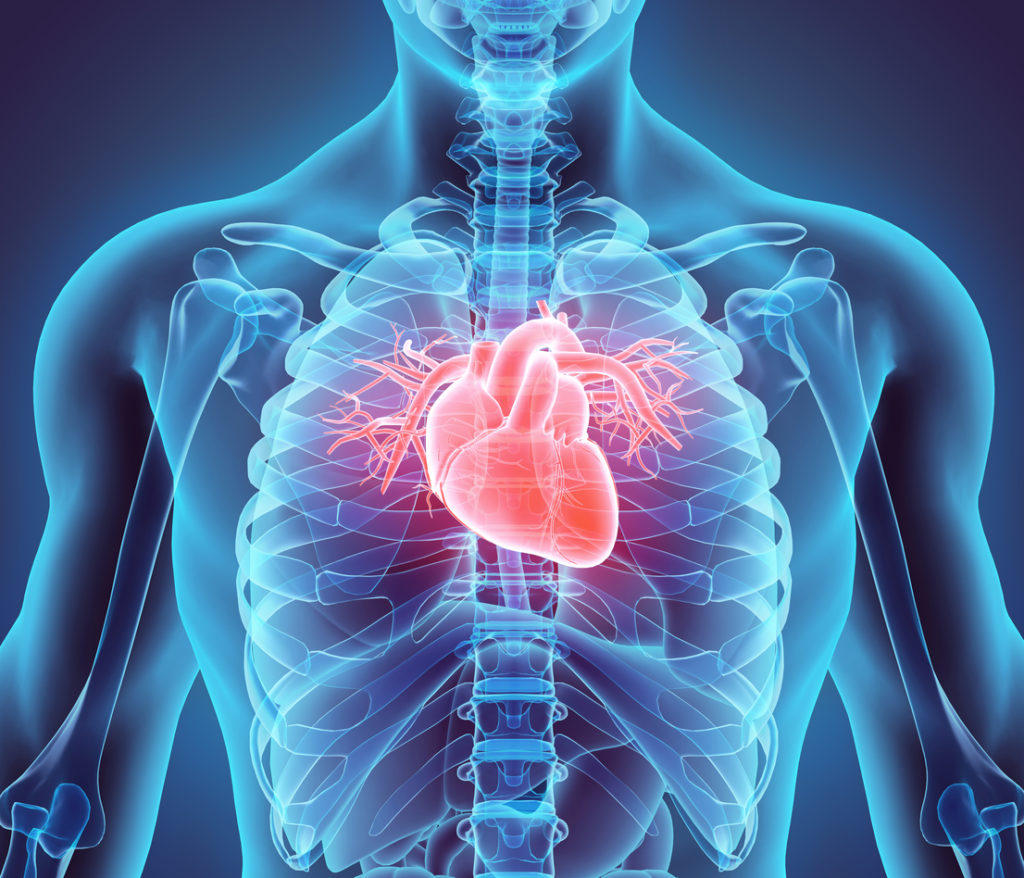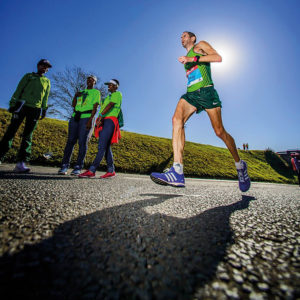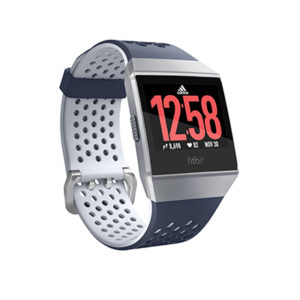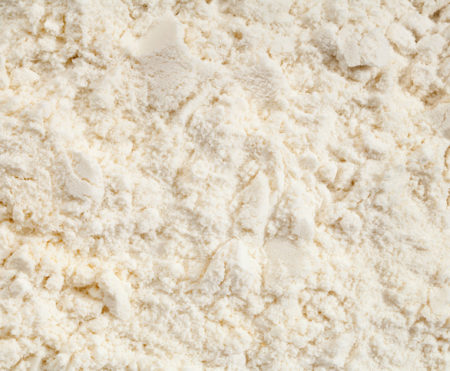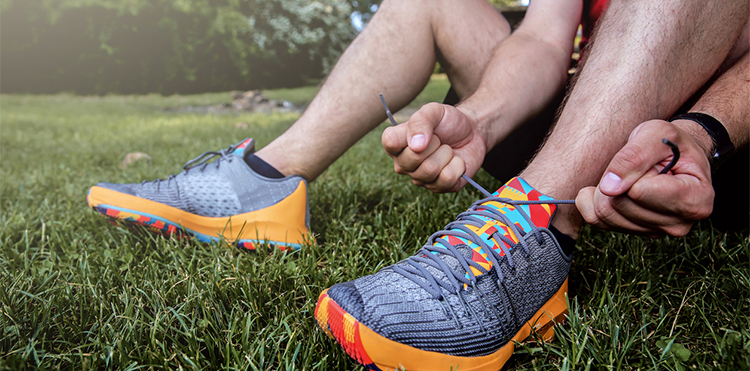If you ask the average runner about the risks involved in our sport, their top 10 will no doubt include: chafing, blisters, the odd blackened toenail, a pulled muscle (or five) and a dodgy knee (or two). Cardiac arrest doesn’t enter into it; that’s something for non-runners to worry about, right? Well, unfortunately it’s a little more complicated than that.
Sudden cardiac arrest can strike at any time and although sudden cardiac death (SCD) while running is rare, instances of SCD in the running community – especially in long-distance races such as marathons – are becoming more common. In last year’s London Marathon, David Seath tragically lost his life after a suspected cardiac arrest.
Related article: Army Captain Tragically Dies at VMLM
This worrying trend is no doubt partially due to the increase in the number of participants to such races, but there is evidence to suggest that active individuals may be four times more likely to suffer SCD than their less active counterparts. Middle-aged men should be especially cautious. One study of 1.7 million marathon runners in the US indicated that middle-aged men ran the highest risk of SCD, especially within the last three miles of the marathon distance.
Is this cause to abandon your marathon training in favour of binge watching an endless stream of highly entertaining and yet ultimately unfulfilling TV series? No, of course not. Research estimates range from 0.5 to two deaths per 100,000 marathon runners in a given race. In a 2004 study, the risk of death in distances between 10-K and half-marathon was even more rare: 3.1 deaths per million finishers. In other words, the odds of suffering SCD are very low. But as the outcome is so devastating it is important to understand your individual risk factors and the best way to do this is to book in for a cardiac screening.
To learn more about the process, we spoke to Simon Daley and Andy Whittingham from SportAssure Cardiac Screening…
What does your Cardiac Screening involve?
It features several components:
- There is a comprehensive health questionnaire; we measure BMI, blood cholesterol, and blood pressure.
- We conduct a physical examination comprising auscultation of heart sounds to identify any abnormal heart sounds such as a murmur.
- A 12-lead Electrocardiogram (ECG), which looks at the heart’s electrical pathways to detect the presence of most cardiac abnormalities that may lead to sudden cardiac death.
It’s completely non invasive and it only takes about 15 minutes per person. By the end of our screening, if you are asymptomatic and have a normal ECG, you can be reassured that you are in a low risk demographic; however it’s important to understand that nobody ever has a 0% risk of SCD.
Who should be screened?
Anyone that is involved in competitive sport, or that is exerting him or herself over four hours per week is classified as an active individual and their risk is four times higher than the sedentary population of suffering SCD.
Related: Why Your Running Club Should Have a Defibrillator
You both work in the NHS, how does your cardiac screening service differ from NHS services available through a GP?
We started SportAssure because we found that there weren’t many options out there for people to reduce their risk of Sudden Cardiac Death. There are a couple of charities offering cardiac screening for 14-35 year olds, but they don’t provide them for everyone. And when we sat down and looked at a lot of the data, we realised that a lot of new runners are above that age bracket and their options were very limited.
You can only really get an ECG at your GP if you’re having symptoms. But the whole problem with cases of Sudden Cardiac Death is that these are healthy individuals; sportsmen at peak fitness. If an average runner went to the GP and asked, “Can I have ECG to reassure me I’m not going to suffer Sudden Cardiac Death?” they would be sent away because they run, they’re healthy and fine.
If you were to go to your GP saying you were having palpitations, from there they should do an ECG and refer you into cardiology. But it would take around three months, then you’d wait another six weeks for your investigation, then you’d wait another six weeks after that, for your results. You’re looking at about six months. That’s a lot of anxiety. Whereas we can reassure people that at least their risk is as low as it can be in a matter of 10 days after a 15-minute screening.
If you went in with chest pain, you would be seen within two weeks in what we call “rapid access chest pain clinic”. If there is a serious problem you have to be seen very quickly. But the people that don’t fit into that narrow clinical picture would be referred into a cardiologist and wait 12 weeks for an appointment with cardiology. Admittedly the service is going to be different to what we’re offering but I don’t think there is a system in place in the NHS to provide a service to our demographic.
How much are the screenings?
The more people we’re screening the more flexible we can be on our prices. Twenty or more people we’d charge £60 per person. But we can be flexible. We don’t just want to be a service that caters to rich runners. Our service is for everyone that wants it. Because we’re mobile we can make our service more bespoke for people as well.
If these screenings were adopted more widely do you think that would reduce the number of SCD?
Absolutely. If our screening is widely adopted, we are going to find these high-risk individuals who, if they act on the advice, seek treatment, it will reduce their risk and it will improve things.
6 ways to reduce your risk of SCD
Take it slow
You shouldn’t go from nothing to high intensity; going from a 5K to an ironman for example. People need to give their bodies time to recover and progress steadily rather than going straight into a steep curve.
Research your family history
Some people have a genetic predisposition to heart disease and sudden cardiac arrest.
Pay attention to your body
If you are experiencing chest pain, palpitations, dizziness and shortness of breath during training see your GP.
Eat healthy
Limiting unhealthy fats and salt and making sure to include whole grains, fresh fruits and vegetables in your diet will help regulate your blood pressure and lower your cholesterol.
Don’t smoke
The damaging effects of smoking on your body are so well documented it almost goes without saying but – don’t smoke. Smoking greatly increases your risk of SCD.
Watch your cholesterol
Cholesterol is one of the three biggest risk factors when it comes to SCD. You can’t stop yourself having high cholesterol genetically, but if we can identify that through screening, you can go on to cholesterol modification therapy to treat that.
SportAssure provides a mobile cardiac screening service as well as bespoke CPR and defibrillator training. They can travel to training grounds; sports centres, football clubs, gyms and offices. To speak with them or to make a booking: sportassurecardiacscreening.com

